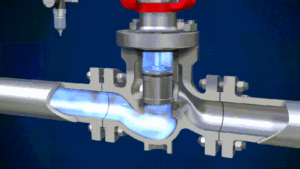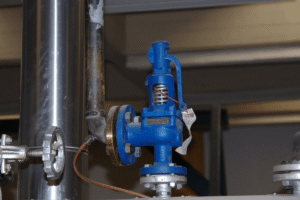Dealing with bathroom leak rust stains can be a frustrating problem for many homeowners. These unsightly marks not only mar the beauty of your bathroom but can also indicate underlying plumbing issues. It’s crucial to understand the causes of these stains and how to effectively address them to prevent further damage. This article will guide you through the reasons behind bathroom leak rust stains and offer practical solutions to tackle this common problem.

Understanding Bathroom Leaks
Before addressing rust stains, it’s important to comprehend the nature of bathroom leaks. Leaks can occur in various parts of the bathroom, including faucets, toilets, and hidden pipes behind walls. These leaks often go unnoticed until visible signs, such as rust stains, appear. Bathroom wall leaks can be particularly troublesome, as they might lead to structural damage if not promptly addressed.
Causes of Rust Stains
Corroded Pipes
One of the primary causes of rust stains in the bathroom is corroded pipes. Over time, water pipes made of iron or steel are prone to rusting, especially when exposed to moisture. This rust can seep into the water supply, leaving stains on bathroom fixtures and tiles.
Hard Water
Another common cause of rust stains is hard water. Hard water contains high levels of minerals, including iron, which can leave reddish-brown streaks on surfaces. These minerals accumulate over time, leading to persistent stains that are difficult to remove.
Identifying the Source of Leaks
To effectively address bathroom leak rust stains, it’s essential to identify the source of the leak. Start by inspecting visible fixtures such as faucets and showerheads for leaks. For hidden leaks, you might need to check behind walls or beneath the floor. Bathroom tile leaks can be a sign of serious plumbing issues that require immediate attention.
Preventive Measures
Regular Maintenance
Regular maintenance of plumbing fixtures can significantly reduce the risk of leaks and rust stains. Periodically check for any signs of wear and tear in faucets, pipes, and seals. Addressing minor issues early can prevent them from escalating into major problems.
Install Water Softeners
Installing a water softener can help mitigate the effects of hard water by reducing the concentration of minerals. This can prevent the formation of rust stains and extend the lifespan of your plumbing system.
Removing Rust Stains
If you already have rust stains in your bathroom, there are several methods to remove them effectively. Using a mixture of vinegar and baking soda can help dissolve the stains. Alternatively, there are commercial rust removers available that are specifically designed for bathroom surfaces.
Repairing Bathroom Leaks
Addressing the root cause of the leak is crucial to preventing further rust stains. For DIY enthusiasts, fixing minor leaks might be feasible, but for significant plumbing issues, it’s advisable to seek professional help. How to fix leaks provides detailed steps for various types of leaks.

Frequently Asked Questions
What causes bathroom leak rust stains?
Bathroom leak rust stains are primarily caused by corroded pipes and hard water. Corroded pipes release rust into the water supply, while hard water deposits leave mineral stains on surfaces.
How can I prevent rust stains in my bathroom?
Regular maintenance of plumbing fixtures and installing water softeners can prevent rust stains. Additionally, promptly addressing any leaks can mitigate the risk of stains forming.
Are rust stains harmful to health?
While rust stains themselves are not hazardous to health, they can indicate underlying plumbing issues that might affect water quality. It’s important to address the root cause of the stains to ensure a safe water supply.
For more information on identifying hidden leaks in your bathroom, visit this external link.
This article contains affiliate links. We may earn a commission at no extra cost to you.



